Report of International Symposium on Indology in Iran
Step1: A Review on the Research and Studies of Dr. Seyed Mohammad Reza Jalali Naeini
International Symposium on Indology in Iran, Step1: A Review on the Research and Studies of Dr. Seyed Mohammad Reza Jalali Naeini organized by international office for Scientific Cooperation at Institute for Humanities and Cultural Studies with the participation of the Cultural Counselor of the Islamic Republic of Iran in New Delhi and Institute of Indo Persian Studies was held on 4. Sep. 2021, at 9 a.m.
The symposium began with the remarks of the president of the symposium, Dr. Shokouh Sadat Hosseini, Head of International Office for Scientific Cooperation at the Institute for Humanities and Cultural Studies. She spoke about the reasons and scientific fields for studying Indology as well as how to hold this symposium. Then, the scientific secretary of the symposium, Dr. Frank Jahangard, a member of the faculty of Language and Literature Department at the Institute for Humanities and Cultural Studies, spoke on the "necessity of Indology in Iran."Referring to the coexistence of the two peoples of Iran and India in ancient times and the neighborhood of these two peoples after migration, she reviewed the history of cultural and literary relations between the two peoples after Islam and explained the need for Indology in Iran.
Then the video clip of the conference was shown and after that Professor Seyed Akhtar Hussain, President of the Institute of Indo Persian Studies and a member of the faculty of the Center for Persian and Central Asian Studies of Jawaher lal Nehru University began his speech entitled: "India and her people in the poetic frame of the Nal O Drama". After referring to the global position of Indology, he focused on Indology in Iran and divided it into three periods: ancient, middle and contemporary. Then they introduced “Faizi Dekani” and “Masnavi Nel and Daman”.
The other speaker of the symposium, Professor Amir Hossein Zekrgoo, presented his latest research in the field of Indology by presenting the article "Persian Exposure to the Ramayana Epic: Introducing the First Annotated and Illustrated Version of Ramayana in Contemporary Persian Language". He referred to the important work of the Ramayana in Indian culture and compared and analyzed four different versions of the work from different periods.
Professor Akhlaq Ansari Ahan, professor and researcher of Indian and Persian studies and a member of the faculty of the Center for Central Asian Studies at Jawaharlal Nehru University, gave a lecture entitled "Comparative Study of Religions by Daralshokooh and Dr. Jalali Naeini". Daralshokooh is one of the prominent personalities of India whose works have been highly regarded by Dr. Jalali Naeini and works such as the selections of Daralshkooh and the Bahrain Assembly have been published in Iran by Dr. Jalali Naeini. He introduced and compared the views of these two thinkers and with focusing on the unity of existence in the views and ideas of Daralshkooh, compared the views of Dr. Jalali Naeini with him.
Dr. Safoura Boroumand, a member of the faculty of Historical Sciences Department at the Institute for Humanities and Cultural Studies, presented her article entitled "Seeker of the horizons of India; Professor Fathullah Mojtabaei". He compared the views of two prominent contemporary Indologists, namely Dr. Jalali Naeini and Professor Fathollah Mojtabaei, and explained and analyzed their commonalities.
Professor Arshad Ghaderi gave a lecture entitled "Contribution of Mohammad Reza Jalali Naini to Indic Studies with Special Reference to Tazkira Muntakhab-al Lataif" on the valuable book of Tazkira Muntakhab-al Lataif by Rahm Ali Khan Imani, published by Dr. Jalali Naini. Professor Ghaderi pointed to the two thousand poets whose names have been immortalized in this Tazkira, and in analyzing the various sections of this Tazkira, praised the high effort and accuracy of Dr. Jalali Naeini and Dr. Abedi, who have tried to compile an accurate text.
Dr. Mohammad Ali Rabbani, Iran's cultural counselor in India, was another speaker at the symposium. He lectured on "Contemporary Indology in Iran" and introduced and studied the works of the greatest contemporary Indologist.
Dr. Abolghasem Radfar, a retired professor at the Institute for Humanities and Cultural Studies, who has valuable studies and research in the field of Indology, spoke about the "rich treasure of Persian resources in Indian libraries." He studied various libraries in southern India based on the city of Hyderabad and particularly described the three important and rich libraries of this city; Salar Jang Library, Ottoman University Library and Asifie Library. He considered the value of these libraries not only in terms of the quantity of books, manuscripts, documents, notes, but also in terms of the quality and excellence of the content.
Dr. Fariba Afkari, lecturer and researcher in manuscripts, documents and archives and director of the library of the faculty of World Studies at the University of Tehran, studied the role and position of Dr. Seyed Mohammad Reza Jalali Naeini in Indology studies." Explaining the position of Dr. Jalali Naeini's scientific activities, he considered them as a valid source for teaching Indian studies in the master's and doctoral courses and pointed to the need for bibliography in the field of Indian studies.
Dr. Elham Malekzadeh, a member of Historical Sciences Department at the Institute for Humanities and Cultural Studies and the executive secretary of the conference, presented her article entitled "The Link between Politics and Culture, an Overview of the Life and Political and Cultural Activities of Dr. Seyed Mohammad Reza Jalali Naeini". She looked at the life and time of Dr. Jalali Naeini from another point of view and after examining the historical situation of Dr. Jalali Naeini and explaining his position in the politics of the Pahlavi era, analyzed his political record. Then she studied the period of journalism and senatorship of Dr. Jalali Naeini until he retired from political activities and turned his full attention to cultural activities.
Ms. Ziba Jalali Naeini, a publisher and cultural activist, spoke her lecture entitled “the inner rising and Hijrat adapted to the time" about aspects of Dr. Jalali Naeini's private life. She calls him not only a child of his time, but a child of a time who founded it himself and invited others to attend and boast about it.
At the end of the symposium, the necessity of establishing and strengthening the field of Indology in Iran was pointed out and also the necessity of compiling a bibliography of Indian studies was emphasized.
The International Symposium on "Indology in Iran" ended at 2 p.m.


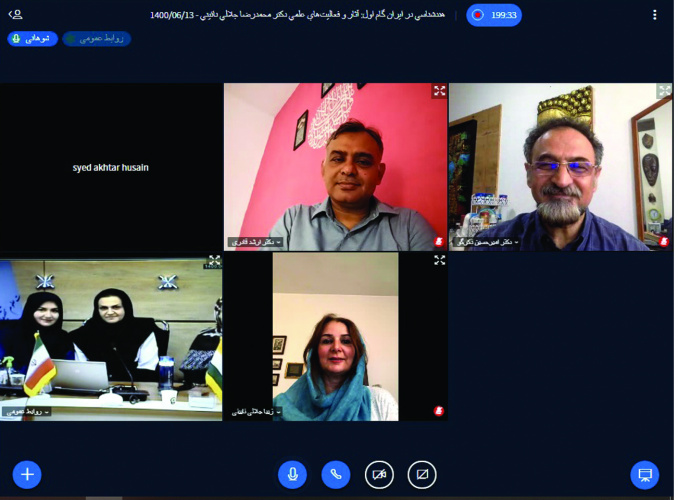
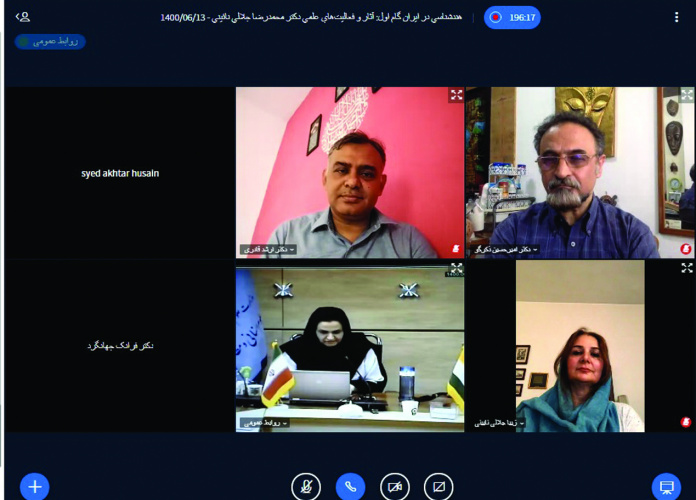
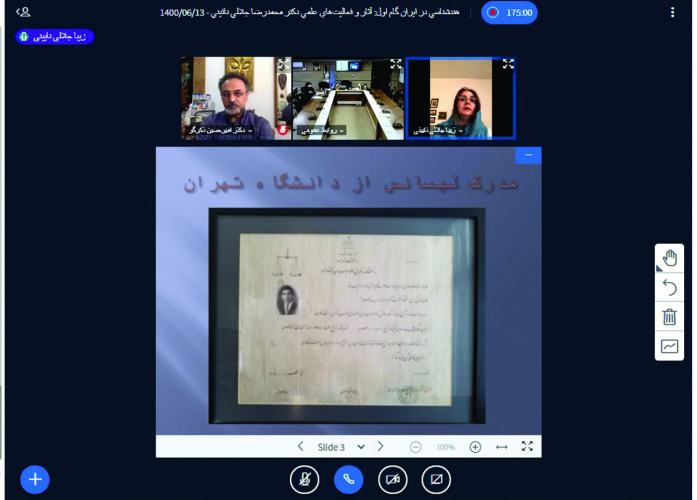
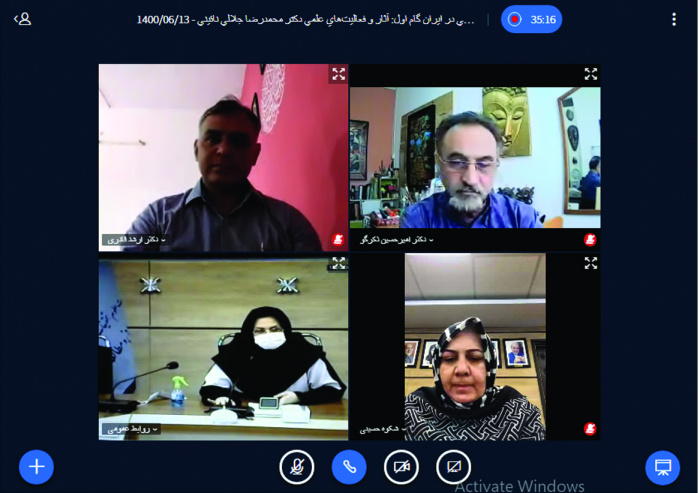
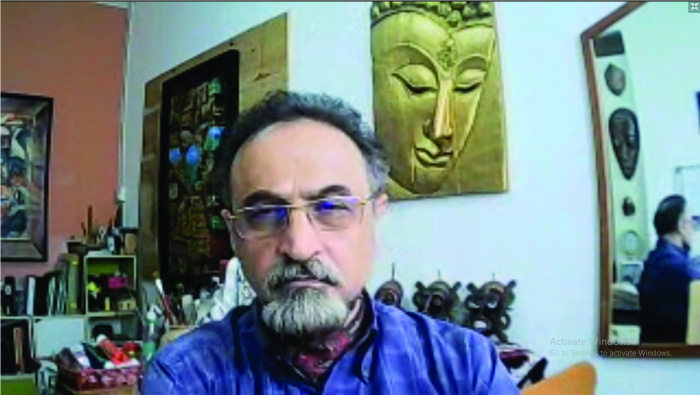
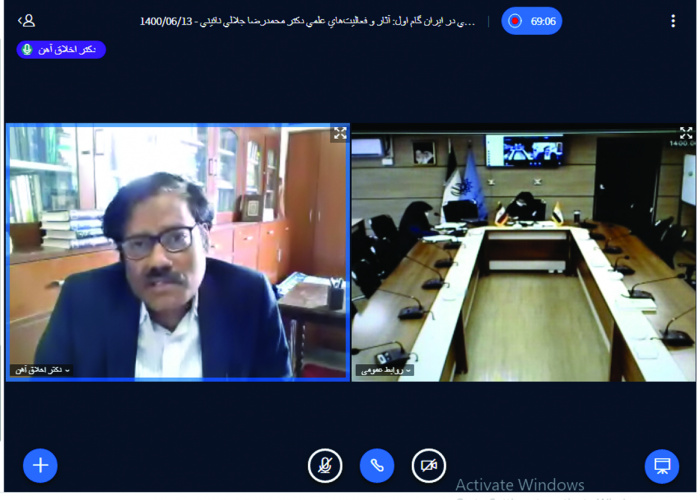
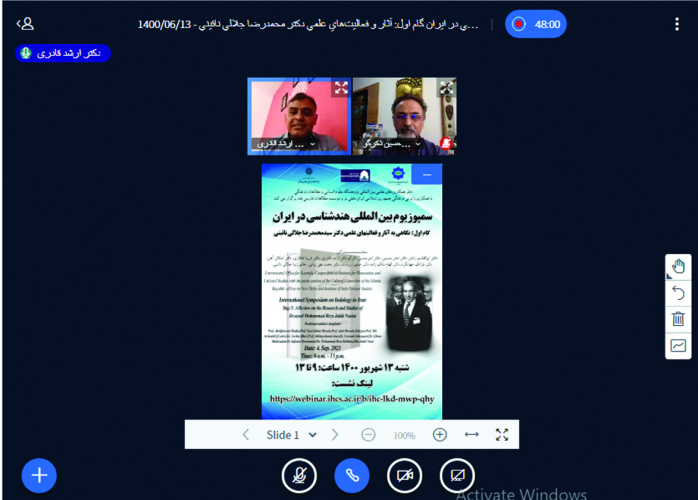
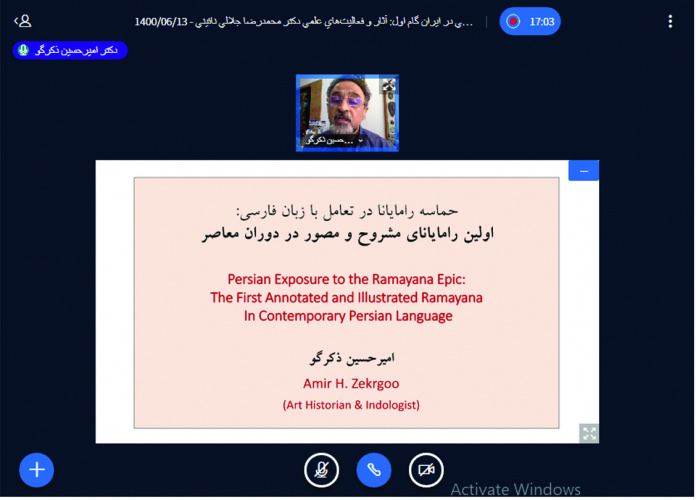








Your Comment :